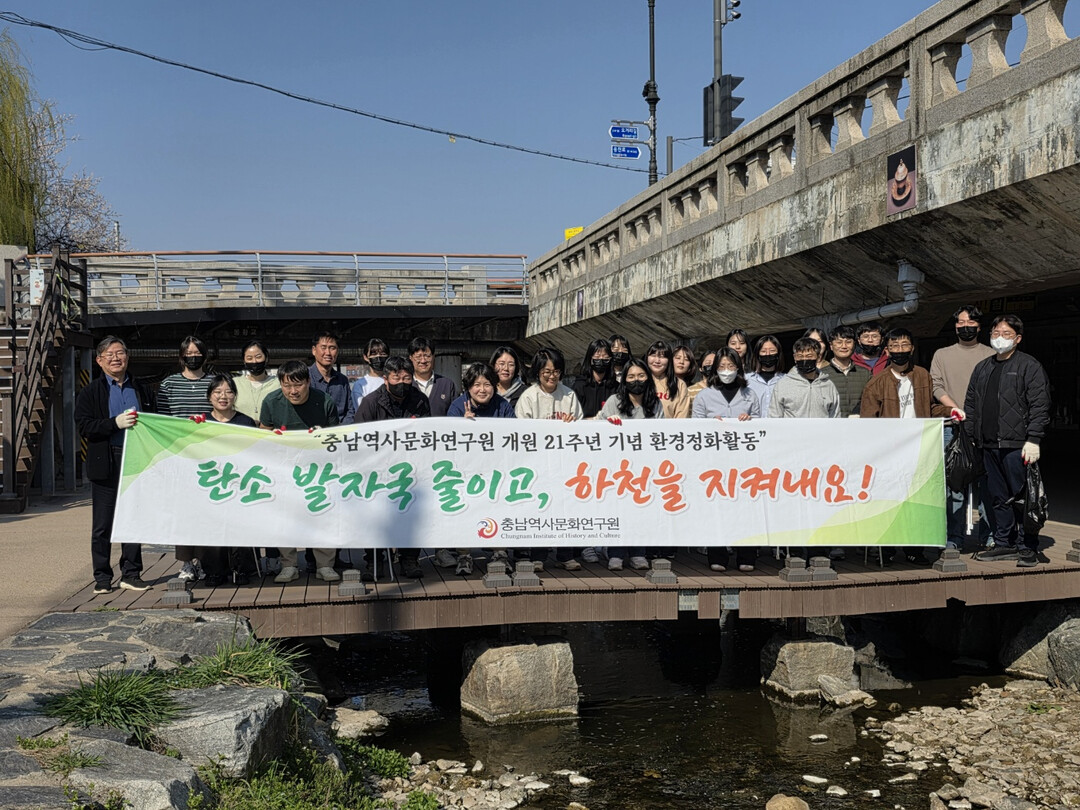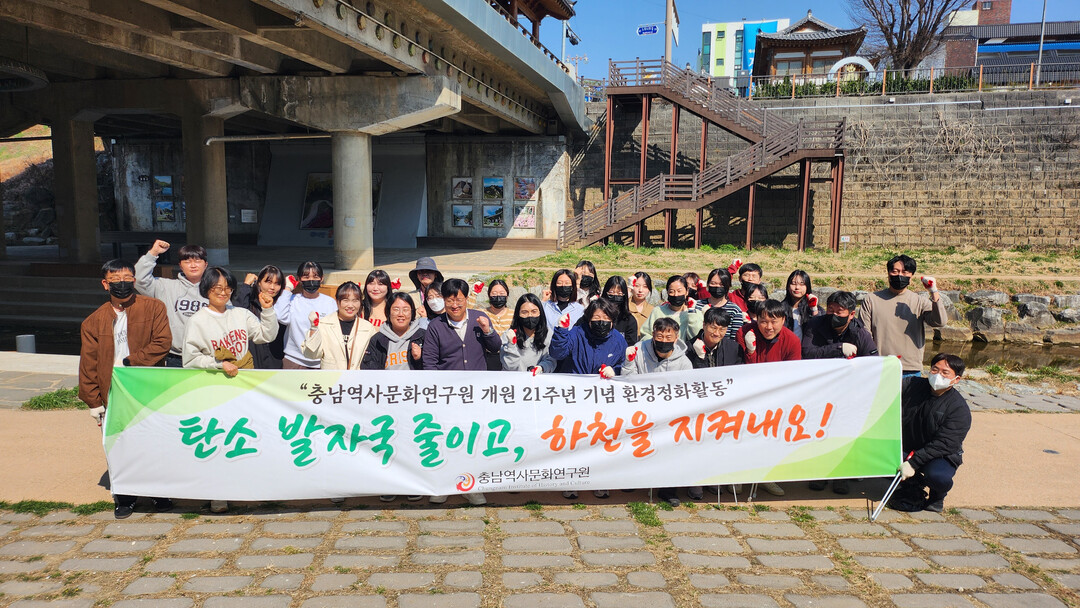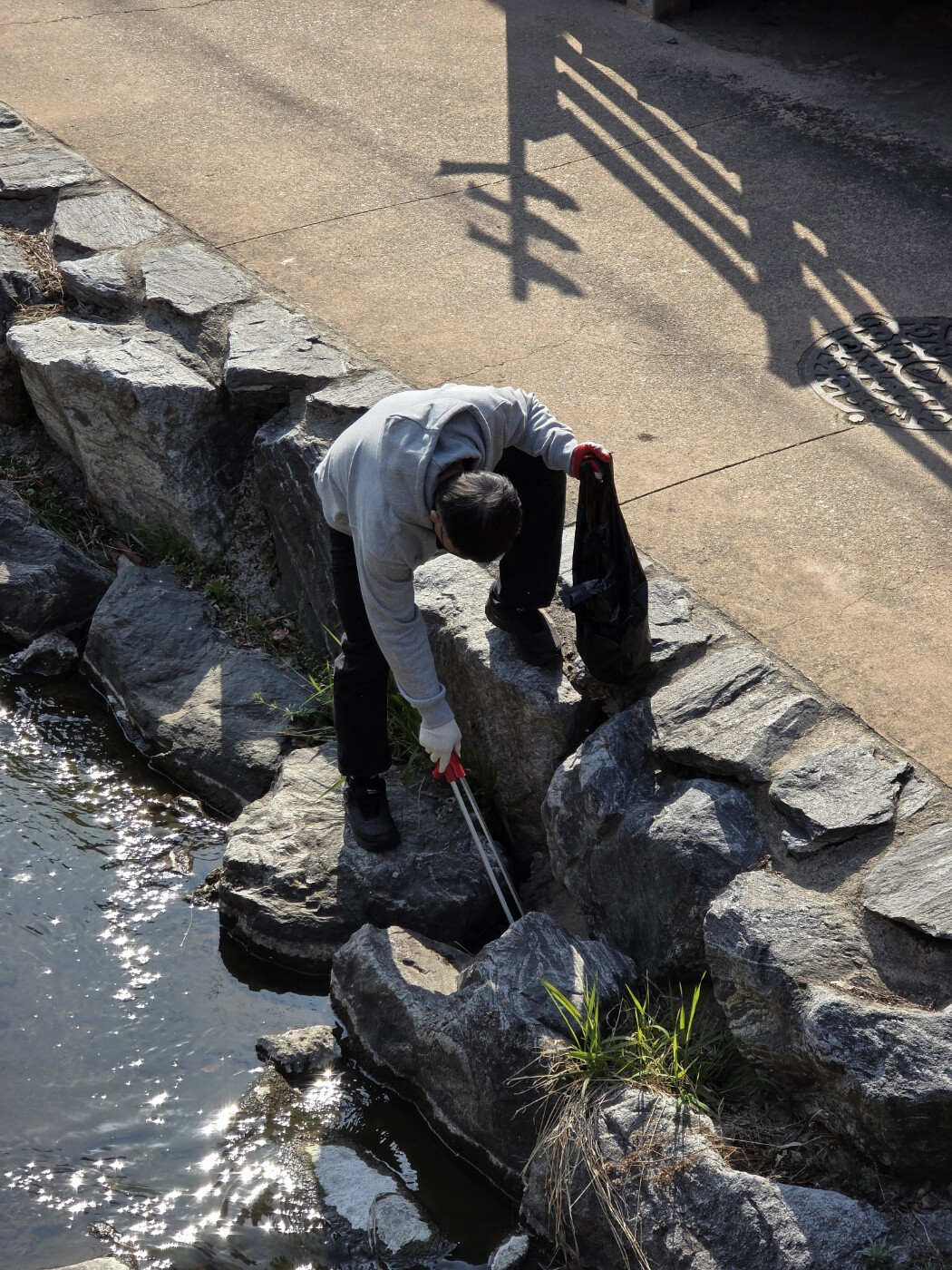
Gongju, South Korea – The Chungnam Institute of History and Culture (Director Kim Nak-jung) commemorated its 21st anniversary by conducting a significant environmental cleanup initiative along the Jemincheon Stream in Gongju on Tuesday, April 1st. This event underscores the institute's commitment to addressing the climate crisis and achieving carbon neutrality, while also contributing to the sustainable preservation of the local environment in partnership with the community.
The cleanup activity spanned approximately 5 kilometers of the Jemincheon Stream, starting from the Hwangsaebawi (Yellow Crane Rock) section towards the Gongju City Hall. Participating researchers and staff diligently collected various forms of litter, including household waste, plastics, and cigarette butts, that had accumulated along the walking paths and riverbanks. Furthermore, they inspected and maintained the safety of the footpaths and the vegetation along the stream, addressing areas that required attention. This initiative went beyond a simple cleanup, demonstrating the institute's dedication to ecological conservation alongside its traditional role in preserving cultural heritage.
Director Kim Nak-jung emphasized the interconnectedness of their missions, stating, "Protecting history and culture is not merely about preserving the past; it is intrinsically linked to nurturing the environment for future generations." He added, "Through this cleanup of Jemincheon Stream, we aim to care for our local environment, resonate with the pressing global issue of carbon neutrality, and actively embody these values as an institution." Director Kim further expressed the institute's commitment to ongoing collaboration with the local community through diverse initiatives that contribute to sustainable development.
The Chungnam Institute of History and Culture plays a crucial role in researching, excavating, and preserving the history and culture of the Chungnam region. This environmental cleanup, held in conjunction with its anniversary, reflects the institute's broader efforts to fulfill its social responsibilities and expand its role as a public institution beyond its core research activities. Looking ahead, the institute plans to spearhead various initiatives in collaboration with local residents, including carbon neutrality campaigns and educational programs promoting eco-friendly practices, thereby fostering a sustainable local community where environment and culture thrive in harmony.


[Copyright (c) Global Economic Times. All Rights Reserved.]






























